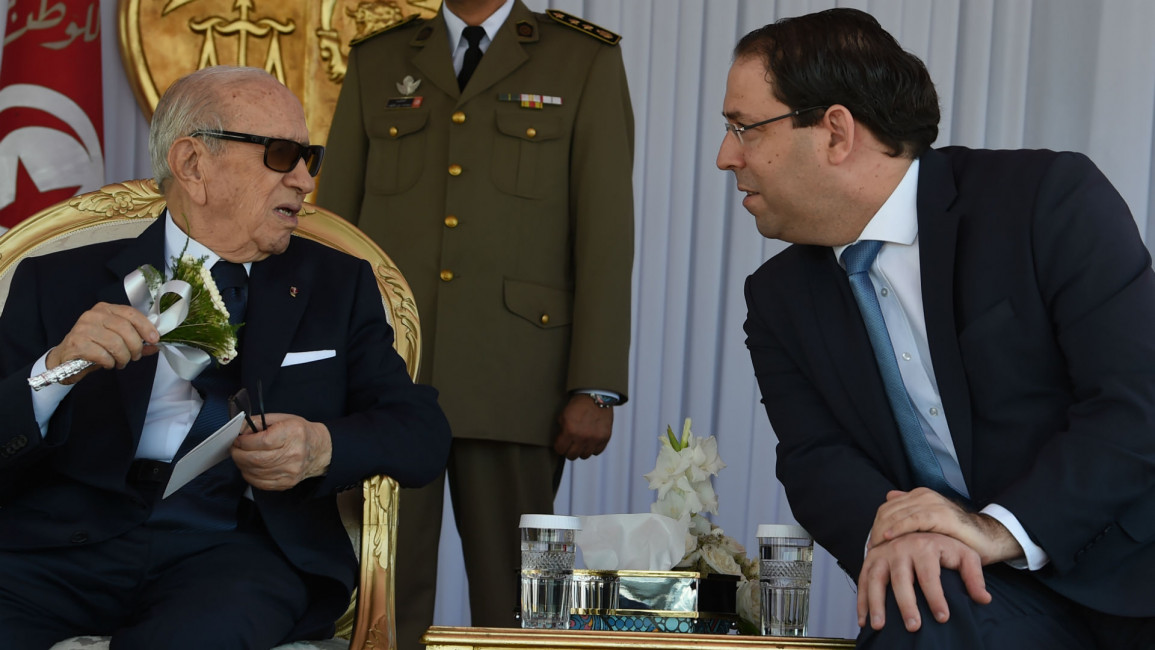Tunisian president accuses PM of secret pact for power
Tunisia's president accused the prime minister of seeking power through a secret deal with an Islamist party on Tuesday, the latest sign of tension at the top ahead of elections.
President Beji Caid Essebsi said Prime Minister Youssef Chahed had gained the backing of the Ennahdha party to stand in the presidential polls, according to the Al Arab newspaper.
"Chahed wants to stay in power... Ennahdha has understood his ambition... They have pushed him to create a new party which divides power between them after the 2019 elections," said Essebsi, whose comments were verified by the presidency.
Chahed was appointed by Essebsi in 2016 but relations between the pair have strained in recent months, fuelling speculation the prime minister will run in this year's presidential election.
For his part, 92-year-old Essebsi indicated he would not seek a second term.
"My ambition is not to stay president for life. I am not in favour of a president for life," he said.
Essebsi's claim of a private pact by Chahed comes as the premier prepares for elections with a progressive platform - the Tahia Tounes movement - described as being in opposition to Ennahdha.
Its political stance is similar to that of Essebsi's secularist Nidaa Tounes, which won the 2014 elections and formed a coalition with Ennahdha that lasted four years.
Nidaa Tounes has since split and its leader, Essebsi's son Hafedh, has been battling to oust the prime minister for months.
Earlier this month, Tunisians rallied in downtown Tunis to commemorate the eighth anniversary of the 2011 uprising that unseated long-time authoritarian ruler Zine El-Abidine Ben Ali.
Marches and gatherings were held by different political parties, trade unions and civil society groups for a day of celebration, although anger over the revolution's unfulfilled goals was also visible among Tunisians, with widespread discontent over high living costs, unemployment and corruption.
Painful austerity measures have been implemented, including raising taxes, slashing fuel subsidies and cutting the public sector wage bill, which accounts for around half the national budget.
In addition, authorities have allowed the devaluation of the Tunisian dinar in an attempt to boost the competitiveness of exports, as recommended by the International Monetary Fund (IMF).
Follow us on Twitter: @The_NewArab



